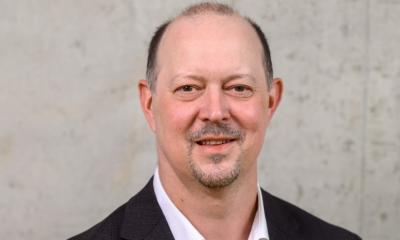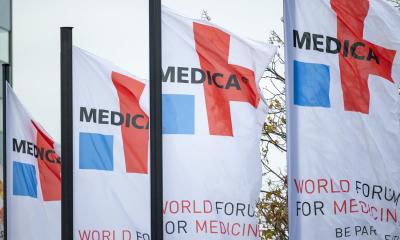Is Russia still a promising market for medical manufacturers?
European Hospital discovers optimism among exhibitors
The Russian Healthcare market has always been lucrative for European medical technology companies.
At December’s Zdravookhraneniye, the most important medical fair in Western Russia, Belarus and the Ukraine, the biggest percentage of exhibitors came from Germany, with 90 companies.
Even during that last event, the view from the Moscow exhibition centre towards the skyline of the prestige building project Moscow City was somewhat depressing for exhibitors. Building work had already ceased, which is still the case today. Apart from spending by the Russian government, which began investing in high-end medical technology in the context of the National Health Project in 2007, private hospitals have been the main investors in the high-end products manufactured by western European companies. However, since the global financial crisis has hit Russia with a vengeance, some suggest that boom in the healthcare spending could come to a sudden end.
The organisers and project partners of the German pavilion at Zdravookhraneniye present a more positive view. ‘German products started establishing themselves in Russia in the 1990s because of their high quality,’ explained Marcus Wenzel, consultant for electromedical technology at ZVEI (German Electrical and Electronic Manufacturers’ Association) in his closing report on the Zdravookhraneniye 2008. ‘The Russian healthcare service has some catching up to do, particularly when it comes to equipment technology. Older procedures, such as conventional X-rays, are increasingly being replaced by new technologies, such as CT, with modern ultrasound systems also of great importance. Product quality is more important than price to Russian customers, when it comes to the acquisition of new technologies.’
‘There hasn’t been a let-up in interest among German companies in being represented at the Zdravookhraneniye,’ confirmed Dietmar Terviel, project manager at the Messe Düsseldorf, which organizes the German pavilion at the Russian fair. ‘We are confident that we can at least maintain the previous year’s level of presence at the next fair (7-11 December 2009) as well. In fact, our objective is to grow even further and occupy another hall.’
Exhibitors agree that the Moscow fair is an important constant. They particularly value the quality of personal customer contact at the exhibition and the respective business prospects. Next to customer contact, general market observation and brand advertising are also important factors for many companies to continue their attendance at this Moscow event.
‘The opportunity for official participation through the German pavilion makes joining a lot easier for newcomers as well as established exhibitors,’ added Dietmar Terviel encouragingly.
01.03.2009









